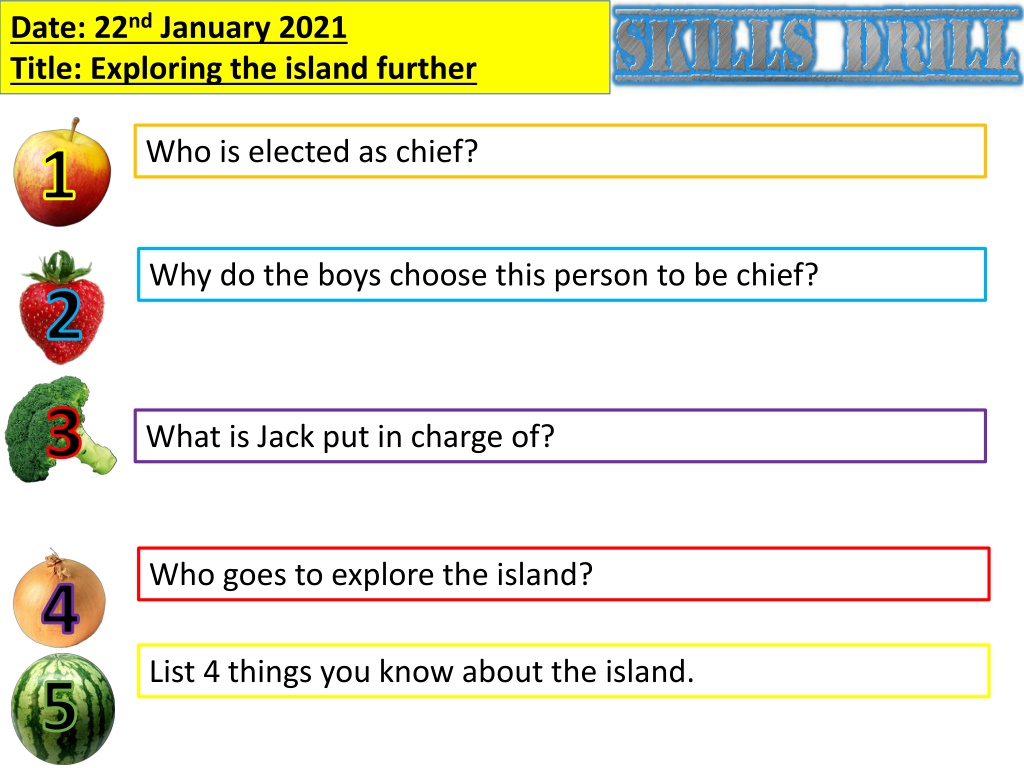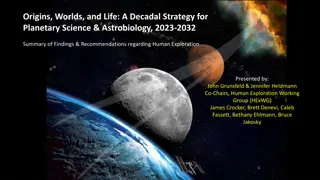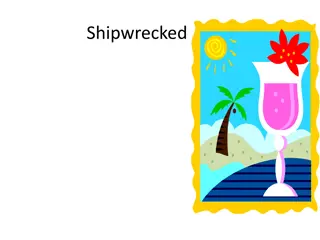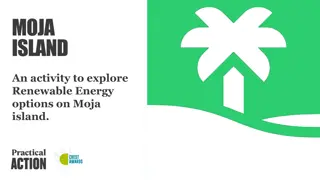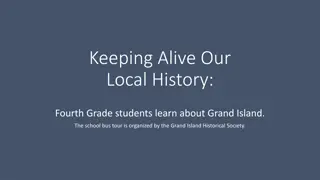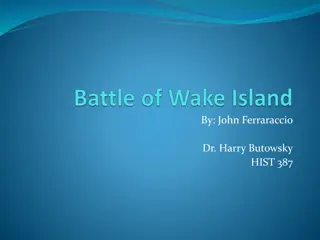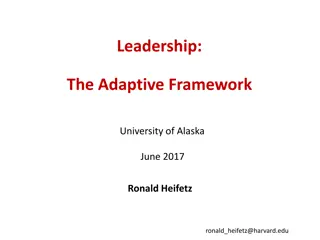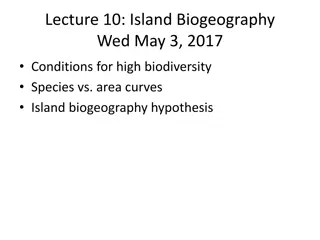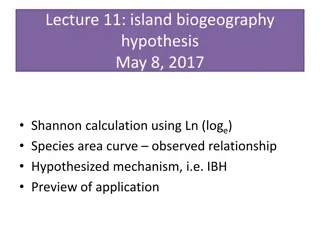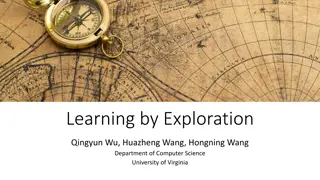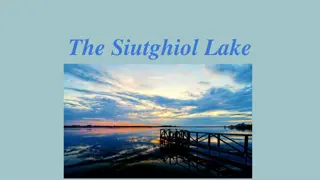Island Exploration and Leadership Challenges
The boys on the island continue their exploration, electing a chief and facing leadership challenges. Jack's arrogance and desire for power contrast with democratic ideals. They venture through forests, conquer challenges, and marvel at the island's beauty amidst struggles for control.
Download Presentation

Please find below an Image/Link to download the presentation.
The content on the website is provided AS IS for your information and personal use only. It may not be sold, licensed, or shared on other websites without obtaining consent from the author. Download presentation by click this link. If you encounter any issues during the download, it is possible that the publisher has removed the file from their server.
E N D
Presentation Transcript
Date: 22nd January 2021 Title: Exploring the island further Who is elected as chief? 1 Why do the boys choose this person to be chief? 2 3 What is Jack put in charge of? Who goes to explore the island? 4 5 List 4 things you know about the island.
democracy a system of government by the whole population or all the eligible members of a state, typically through elected representatives. I ought to be chief, said Jack with simple arrogance. How does this relate to the idea of democracy? Use the conjunctions because, but and so. This relates to the idea of democracy because Jack believes he deserves to be chief but does not think he needs to be elected, so this would not be a democracy.
The pink granite of the next cliff was further back from the creepers and trees so that they could trot up the path. This again led into more open forest so that they had a glimpse of the spread sea. With openness 1. What can the boys see from the open forest? 2. What is the large rock compared to? 3. What do the boys try to do to the rock? came the sun; it dried the sweat that had soaked their clothes in the dark, damp heat. At last the way to the top looked like a scramble over pink rock, with no more plunging through darkness. The boys chose their way through defiles and over heaps of sharp stone. Look! Look! High over this end of the island, the shattered rocks lifted up their stacks and chimneys. This one, against which Jack leaned, moved with a grating sound when they pushed. Come on But not Come on to the top. The assault on the summit must wait while the three boys accepted this challenge. The rock was as large as a small motor car. Granite = very hard rock Trot = run Glimpse = short look Scramble = move quickly Plunging = steeply dropping Assault = attack Heave = lift up/throw (something heavy) Heave! Sway back and forth, catch the rhythm. Heave! Increase the swing of the pendulum, increase, increase, come up and bear against that point of furthest balance increase increase Heave!
The great rock loitered, poised on one toe, decided not to return, moved through the air, fell, struck, turned over, leapt droning through the air and smashed a deep hole in the canopy of the forest. Echoes and 1. What happens when they manage to push the rock? 2. What do they compare the falling rock to? 3. What can the boys see at the circular hollow in the side of the mountain? birds flew, white and pink dust floated, the forest further down shook as with the passage of an enraged monster: and then the island was still. Wacco! Like a bomb! Whee-aa-oo! Not for five minutes could they drag themselves away from this triumph. But they left at last. The way to the top was easy after that. As they reached the last stretch Ralph stopped. Golly! Loitered = hung around/wasted time poised = positioned/calm and confident Leapt = jumped Canopy = cloth covering that shelters Enraged = very angry Triumph = victory Lavishly = beautifully fluttering = flapping wings/moving unsteadily Clambering = climbing Instinct = gut feeling Horizon = line in the distance where the Earth and sky meet They were on the lip of a circular hollow in the side of the mountain. This was filled with a blue flower, a rock plant of some sort, and the overflow hung down the vent and spilled lavishly among the canopy of the forest. The air was thick with butterflies, lifting, fluttering, settling. Beyond the hollow was the square top of the mountain and soon they were standing on it. They had guessed before that this was an island: clambering among the pink rocks, with the sea on either side, and the crystal heights of air, they had known by some instinct that the sea lay on every side. But there seemed something more fitting in leaving the last word till they stood on the top, and could see a circular horizon of water.
Ralph turned to the others. This belongs to us. It was roughly boat-shaped: humped near this end with behind them the jumbled descent to the shore. On either side rocks, cliffs, treetops 1. What do the boys learn about the island from the top of the mountain? 2. What is the large pink rock compared to? 3. How is the large pink rock personified? 4. How is the coral reef described? and a steep slope: forward there, the length of the boat, a tamer descent, tree-clad, with hints of pink: and then the jungly flat of the island, dense green, but drawn at the end to a pink tail. There, where the island petered out in water, was another island; a rock, almost detached, standing like a fort, facing them across the green with one bold, pink bastion. The boys surveyed all this, then looked out to sea. They were high up and the afternoon had advanced; the view was not robbed of sharpness by mirage. That s a reef. A coral reef. I ve seen pictures like that. The reef enclosed more than one side of the island, lying perhaps a mile out and parallel to what they now thought of as their beach. The coral was scribbled in the sea as though a giant had bent down to reproduce the shape of the island in a flowing chalk line but tired before he had finished. Inside was peacock water, rocks and weeds showing as in an aquarium; outside was the dark blue of the sea. The tide was running so that long streaks of foam tailed away from the reef and for a moment they felt that the boat was moving steadily astern. Descent = lowering/downward movement Clad = covered Bastion = strong protector Astern = backwards/behind Jack pointed down. That s where we landed.
Beyond falls and cliffs there was a gash visible in the trees; there were the splintered trunks and then the drag, leaving only a fringe of palm between the scar and the sea. There, too, jutting into the lagoon, was the 1. From the top of the mountain, they can see no village smoke and no boats. What do they realise about the island? 2. How does Jack plan on getting food? platform, with insect-like figures moving near it. Ralph sketched a twining line from the bald spot on which they stood down a slope, a gully, through flowers, round and down to the rock where the scar started. That s the quickest way back. Eyes shining, mouths open, triumphant, they savoured the right of domination. They were lifted up: were friends. There s no village smoke, and no boats, said Ralph wisely. We ll make sure later; but I think it s uninhabited. We ll get food, cried Jack. Hunt. Catch things until they fetch us. Simon looked at them both, saying nothing but nodding till his black Splintered = broke into small, sharp pieces Jutting = sticking out Triumphant = proud (about winning) savoured = enjoyed the taste of Domination = rule Wisely = intelligently Uninhabited = empty of people Gesture = (hand/arm movement)/action Flailed = whipped/waved (one's) arms Acres = areas of land about 200 feet x 220 feet hair flopped backwards and forwards: his face was glowing. Ralph looked down the other way where there was no reef. Steeper, said Jack. Ralph made a cupping gesture. That bit of forest down there. . . the mountain holds it up. Every point of the mountain held up trees flowers and trees. Now the forest stirred, roared, flailed. The nearer acres of rock flowers fluttered and for half a minute the breeze blew cool on their faces. Ralph spread his arms. All ours.
They laughed and tumbled and shouted on the mountain. I m hungry. 1. Why is Jack unimpressed by the candle buds ? When Simon mentioned his hunger the others became aware of theirs. Come on, said Ralph. We ve found out what we wanted to know. They scrambled down a rock slope, dropped among flowers and made their way under the trees. Here they paused and examined the bushes round them curiously. Simon spoke first. Like candles. Candle bushes. Candle buds. The bushes were dark evergreen and aromatic and the many buds were waxen green and folded up against the light. Jack slashed at one with his knife and the scent spilled over them. Candle buds. You couldn t light them, said Ralph. They just look like candles. Green candles, said Jack contemptuously. We can t eat them. Come on. Mentioned = talked about/said scrambled down = quickly moved down Aromatic = nice-smelling Slashed = deeply cut Contemptuously = hatefully
They were in the beginnings of the thick forest, plonking with weary 1. What can the boys hear? 2. What is the making the noise? 3. What does Jack almost do? feet on a track, when they heard the noises squeakings and the hard strike of hoofs on a path. As they pushed forward the squeaking increased till it became a frenzy. They found a piglet caught in a curtain of creepers, throwing itself at the elastic traces in all the madness of extreme terror. Its voice was thin, needle-sharp and insistent; The three boys rushed forward and Jack drew his knife again with a flourish. He raised his arm in the air. There came a pause, a hiatus, the pig continued to scream and the creepers to jerk, and the blade continued to flash at the end of a bony arm. The pause was only long enough for them to understand what an enormity the downward stroke would be. Then the piglet tore loose from the creepers and scurried into the undergrowth. They were left looking Weary = tired Frenzy = rushed craziness Insistent = demanding/repeating Flourish = wave/grow/decoration Hiatus = pause Enormity = hugeness (in a bad way) Scurried = quickly ran Noticed = saw/heard/became aware of aloft = up in the air Ashamedly = with shame at each other and the place of terror. Jack s face was white under the freckles. He noticed that he still held the knife aloft and brought his arm down replacing the blade in the sheath. Then they all three laughed ashamedly and began to climb back to the track.
I was choosing a place, said Jack. I was just waiting for a moment 1. What excuse does Jack give for not killing the pig? 2. What is the real reason Jack did not kill the pig? to decide where to stab him. You should stick a pig, said Ralph fiercely. They always talk about sticking a pig. You cut a pig s throat to let the blood out, said Jack, otherwise you can t eat the meat. Why didn t you ? They knew very well why he hadn t: because of the enormity of the knife descending and cutting into living flesh; because of the unbearable blood. I was going to, said Jack. He was ahead of them, and they could not see his face. I was choosing a place. Next time ! He snatched his knife out of the sheath and slammed it into a tree trunk. Next time there would be no mercy. He looked round fiercely, fiercely extremely strongly enormity hugeness (in a bad way) descending lowering/downward- moving/originating unbearable terrible snatched grabbed contradict go against devouring eating/destroying daring them to contradict. Then they broke out into the sunlight and for a while they were busy finding and devouring food as they moved down the scar toward the platform and the meeting.
A group of boys are ______ on an island after being _________ from a warzone. The _________of Ralph and Piggy are introduced. The boys find a ______shell. Piggy knows what a conch is, and has the idea of using it to ________ the others. This suggests he s ___________. conch characters marooned call intelligent evacuated
The most impressive entrance is made by a group of choirboys led by the red-haired _________, head boy and chapter chorister. One of the choirboys,_________, faints near the platform where the boys are gathering. The boys elect ________as chief. Jack believes the role should be his. He and Ralph agree that the choir will be the __________, with Jack in charge. Ralph, Jack and Simon explore the island. They come across a piglet, which Jack almost kills before_________. He declares he will spill blood __________ . Jack Merridew next time Simon hunters Ralph hesitating
How does Golding use language to describe the act of killing a pig? They knew very well why he hadn t: because of the enormity of the knife descending and cutting into living flesh; because of the unbearable blood. Task 1: Quotation explosion. Task 2: Analytical paragraph. At the start of the novel, the boys discover a pig. Jack raises his knife to kill it, but hesitates, and the pig escapes. Golding describes the act of killing a pig as when . quote It is clear that at this moment in the novel, Jack feels In particular, by using , Golding suggests He may have been trying to show Underline and annotate words you think are most powerful. What is the effect of the writer s language choices?
What knowledge have you learnt today? What skills have you learnt/developed today? How has your previous learning helped you today?
